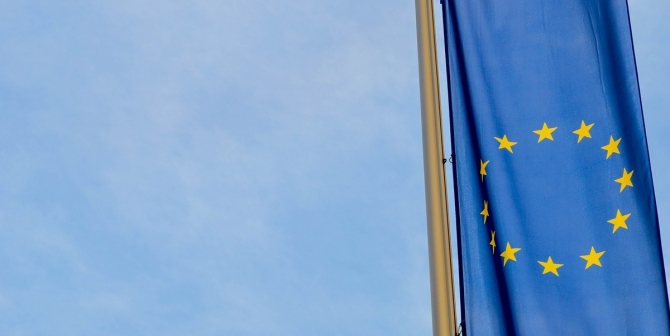 LSE’s Myria Georgiou looks at the implications of recently released Ofcom research for the BBC and its diversity goals. Dr Georgiou developed the Council of Europe/EU sponsored self-monitoring tool for diversity inclusiveness in the media MEDIANE BOX with Mediane Manager, Reynald Blion.
LSE’s Myria Georgiou looks at the implications of recently released Ofcom research for the BBC and its diversity goals. Dr Georgiou developed the Council of Europe/EU sponsored self-monitoring tool for diversity inclusiveness in the media MEDIANE BOX with Mediane Manager, Reynald Blion.
Ofcom’s recent research for its Public Service Broadcasting review reveals that more than half of black ethnic audiences feel underrepresented and unfairly portrayed in mainstream broadcast media. The percentage of black ethnic audiences that felt that they were portrayed negatively is at 51% compared to 2% of all PSB viewers. While the percentages are somehow lower among other ethnic groups, there is still a sense of misrepresentation or underrepresentation among them. For example, 34% of Asian PSB viewers felt that there was not enough representation of Asian minority people on Public Service Broadcasting.
These findings come as no surprise, as research on media production and audiences has again and again indicated limited progress in advancing the representation of Britain’s diversity behind and on the screen. Campaigners and researchers have already raised the alarm and pointed to the many failures of the main publically owned broadcaster, the BBC, in its attempts to address the limited representation of Black, Asian and Minority Ethnic (BAME) people in its ranks and outputs. Recent research reveals negative rather than positive trends in terms of the representation of the country’s cultural diversity in Public Service Broadcasting. More Black, Asian and minority ethnic media professionals resigned from the BBC last year since at least 2009.
When it comes to audiences, evidence is even more worrying. Research commissioned by The Runnymede Trust has found that 78% of those asked felt that the way media portray ethnic minorities promotes racism; this opinion is also held among 76% of White respondents .
Ofcom reminds us in its report that “One of the main aims of Public Service Broadcasting (PSB) is to represent diversity and alternative viewpoints, through programmes that reflect the lives of diverse groups of people and communities both within the UK and elsewhere, to make its audiences aware of the different cultures and viewpoints”.
What should the BBC do? A number of important issues need to be addressed, especially in light of the forthcoming BBC Charter review:
- Where is accountability? If the evidence shows a lack of progress, and even a retreat from progress, what steps must be taken for effective action? Who should be held accountable for the lack of progress in advancing fair representation of BAME in BBC’s leadership, production machinery, and the broadcaster’s outputs? Is there indeed the will and commitment to make the society’s diversity seen and fairly represented in PSB, or is diversity to be sacrificed in times of intense pressure on the broadcaster? The BBC should go beyond setting targets and publicly make known both who is responsible for setting and meeting these targets within the organisation and what the consequences will be if these targets are not met.
- Where is the money? The BBC’s diversity adviser Lady Grey-Thompson recently argued that the BBC needs to spend around £100 million if it wants to achieve true diversity . Currently the BBC has a BAME fund of £2.1m a year. Further reductions to the BBC’s income – especially through the proposed changes to licence fee rules and regulations – are not going to help. If the BBC is to represent society in its complexity and its diversity it shouldn’t be penalised, but supported. So should its core values. If diversity inclusiveness and representation are indeed priorities for the public broadcasters, funds for supporting and promoting them need to be ring fenced and further enhanced.
- How does the BBC address the challenges associated with its production and housekeeping priorities? What is wrong with the given order, which seems to be driving Black, Asian and minority talent away ? As the cultural industries are in their totality undergoing significant transformations that enhance casualization of media labour and demand fast, low-cost production, what steps does the BBC take against the tide? Is the BBC willing to defend its diverse talent as it is under extreme pressure for further cuts, or are BAME staff becoming even more vulnerable? The corporation needs to set some red lines in terms of what kinds of cuts it is willing to make. The broadcaster, alongside the government and the parliamentary committee, needs to be explicit about the consequences of job cuts, especially when it comes to the effects these cuts might have on the representation of already marginalised voices and talent in PSB.
As the BBC undergoes its Charter review and deals with numerous challenges, it is more important than ever to reflect on public values and demands for accountability. It is these values that have strengthened it and allowed it to flourish through its history. How about in its future?
This post gives the views of the authors, and does not represent the position of the LSE Media Policy Project blog, nor of the London School of Economics and Political Science.





